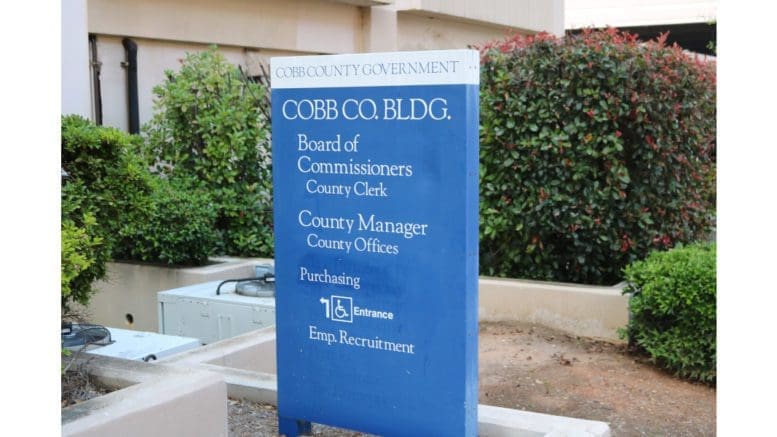In a 3-2 vote, the Cobb County Board of Commissioners approved a millage rate that resulted in a tax increase by the state’s definition, and also passed the FY 2024 budget.
The vote fell along partisan lines, with the Democratic majority voting in favor of Chairwoman Lisa Cupid’s motion to set the millage rate at 8.46, and the two Republicans on the board opposed.
Republican Keli Gambrill who represents District 1 in north and west Cobb presented a substitute motion which would have rolled back the millage rate to 7.168 for the general fund, leaving the other millage rates the same, which and resulting in leaving the county’s revenue flat.
The substitute motion failed, and after further discussion the millage rate proposed by Cupid passed by the same 3-2 vote that Gambrill’s substitute motion failed.
“We have not returned to the 2009 staffing levels because of the recession we experienced,” Chairwoman Cupid said during the discussion. “So what we’d essentially be doing is going further backward instead of forward in providing the level of service our citizens are expecting from us.”
“All of the decisions we make impact the services we provide,” said Cupid. “This is not easy for anyone. We feel for everyone who has to endure the effects of inflation as we do here. But if we don’t make certain decisions today, we will have more dire discussions next year. As we consider the implications of rolling back the millage rate, we could end up having drastic repercussions on how we serve our citizens.”
Watch the discussion on the Board of Commissioner below (skipping past the public hearing)
Watch the third and final public hearing below
How does the state determine whether taxes have increased or decreased?
Under Georgia law, counties and cities are required to calculate a “rollback” millage rate after property reassessments are done and the total digest of taxable property for the year is prepared.
“Millage” is the amount per $1,000 of the taxable value of a property used to calculate how much the property owner owes in taxes.
The “rollback” millage rate is the hypothetical rate at which the taxation under the newly prepared tax digest would produce the same total tax revenue as the previous year.
If the county proposes a millage rate higher than the rollback rate, three public hearings are required so the public can give its opinion on the tax increase.
